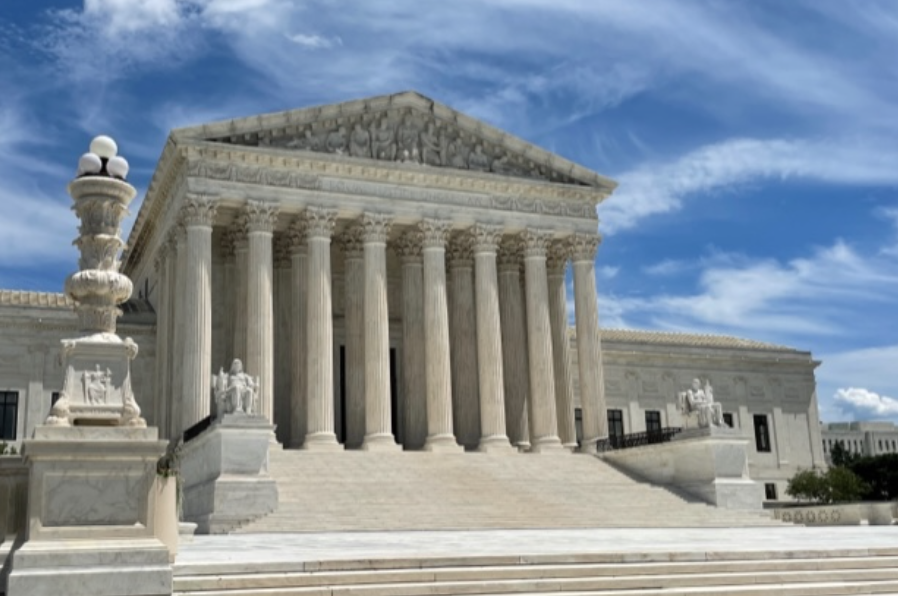SCOTUS Rejects Appeal on Climate Lawsuits

The U.S. Supreme Court has declined to review legal challenges brought by oil companies facing state and local lawsuits demanding compensation for alleged damages linked to climate change.
Energy-rich states, oil corporations, and industry organizations submitted two challenges against the surge of climate-related lawsuits. Critics argue that these legal actions serve as a vehicle to impose anti-fossil fuel policies at the state level. Should these lawsuits succeed, oil firms could be forced to pay billions, a cost that would ultimately be transferred to consumers.
“Consumers are not helped by these cases, which seek to wipe products from store shelves and funnel money to left-wing causes,” stated O.H. Skinner, executive director of the Alliance for Consumers, a nonprofit advocating for consumer interests.
“Here is hoping the targets of these lawsuits continue to fight these cases, as they have consistently prevailed in the final stages of review and that is the only way for consumers to not be sacrificed before the left-wing onslaught here.”
Last year, the Alliance for Consumers released a report uncovering a vast dark money network funding these lawsuits through liberal advocacy groups. The report’s findings align with other investigations into the matter.
In December, Skinner informed Just the News that if these lawsuits—which use state nuisance laws to target energy firms—succeed, companies will be forced to either halt production or invest heavily in emission reduction measures.
Additionally, he warned that these legal battles would effectively push through the Green New Deal via judicial rulings rather than through the proper legislative process.
These lawsuits are expected to expand beyond oil companies, making other major industries vulnerable to similar legal actions. Alongside automakers and the U.S. steel sector, utilities have also come under scrutiny.
The American Enterprise Institute, a conservative think tank, cautioned that by refusing to review the Honolulu case now, the Supreme Court may open the floodgates for further lawsuits by activists aiming to control national energy policy.
“I hope that the Court will hear the issue someday, for the sake of constitutional accountability and the public interest,” said Adam White, a senior fellow at the institute.
In May, a coalition of 19 state attorneys general, led by Alabama Attorney General Steve Marshall, launched a constitutional challenge against similar lawsuits initiated by California, Connecticut, Minnesota, New Jersey, and Rhode Island.
O.H. Skinner, speaking to Just the News, argued that Solicitor General Elizabeth Prelogar’s legal stance deviates from traditional federal government positions.
Historically, when state or local lawsuits interfere with national regulatory matters—such as the Environmental Protection Agency’s role in emissions control—the solicitor general has defended federal authority.
However, in this instance, the Biden-Harris administration contends that the lawsuits are not yet suitable for Supreme Court consideration.
“It looks like they’re motivated by allegiance to the dark money backers behind these cases,” Skinner asserted.
Critics claim that anti-fossil fuel groups, including the San Francisco-based law firm Sher Edling, are benefiting from a covert financial campaign designed to push policies through the judiciary that would fail in legislative bodies.
To further investigate the “wealthy liberals” bankrolling these legal efforts, the House Committee on Oversight and Accountability launched a probe into Sher Edling last year.
The firm responded by arguing that bankrupting oil and gas companies would not serve their clients' best interests. Instead, they claim their legal actions seek damages specifically tied to climate change effects allegedly caused by corporate deception, rather than all environmental consequences.
With President Donald Trump and Republican majorities in Congress anticipated to take a markedly different approach to environmental regulations and energy policy, significant shifts in legal and regulatory battles could be on the horizon.